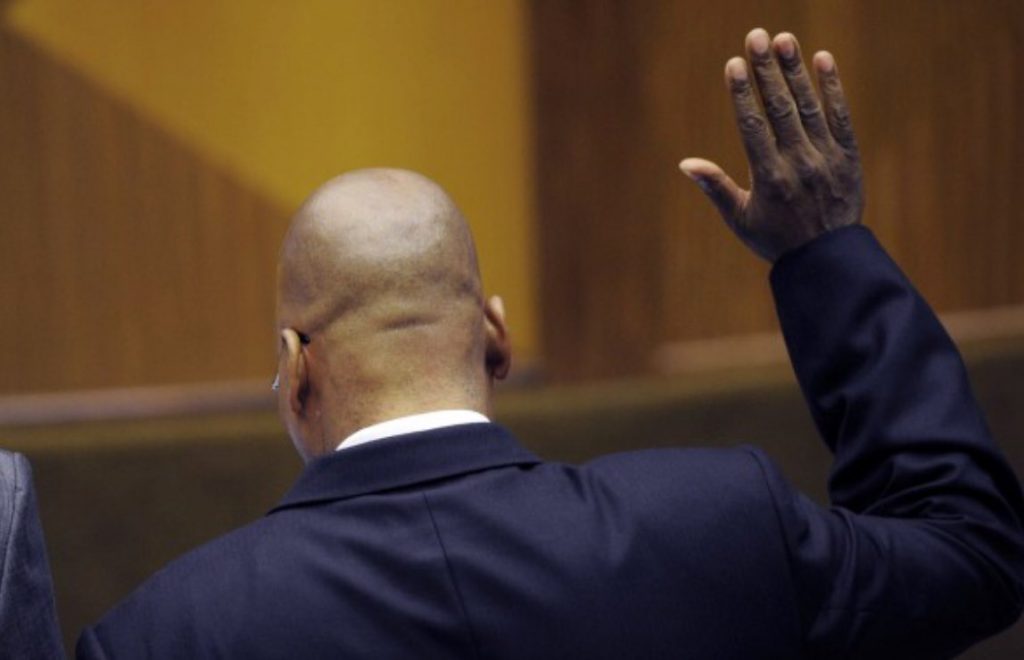South African President Jacob Zuma resigned Wednesday, bringing an end to his scandal-marred tenure and leaving the nation’s leadership in the hands of the ruling African National Congress’s new leader, Cyril Ramaphosa.
“The ANC should never be divided in my name,” Zuma said in a televised address to the nation. “I have therefore come to the decision to resign as the president of the republic with immediate effect.”
Zuma spoke after the ANC announced it would hold a parliamentary vote of no confidence in him on Thursday. Calls for him to quit had grown since Ramaphosa replaced him as ANC leader in December, and his fate was sealed when the party’s National Executive Committee decided Monday to order him to step down.
Crisis Warning
In an interview with the state broadcaster earlier Wednesday, Zuma strongly criticized the ANC’s decision to remove him, calling it “unfair,” and said, “I think we are being plunged into a crisis that i think my comrades will not be able to handle.”
The resignation gives Ramaphosa, 65, more time to convince voters before elections next year that he’s committed to meeting his pledges to rebuild a battered economy and clamp down on the graft that critics say has become synonymous with the Zuma era.
While Zuma’s cabinet doesn’t have to resign, Ramaphosa will be able to hire and fire ministers as he sees fit. With the national budget due to be presented to Parliament on Feb. 21, investors will be watching to see if he retains Malusi Gigaba as his finance minister.
Zuma, 75, has spent years fending off allegations that he took bribes from arms dealers and enabled members of the Gupta family, who are one of his son’s business partners, to influence cabinet appointments and loot billions of rand from state companies.
Gupta Raid
His resignation came just hours after the Hawks, a police investigative unit, raided the Gupta family’s Johannesburg residence. One of the Gupta brothers and four other suspects were arrested in connection with the alleged shifting of funds from a failed state-funded dairy project and are due to appear in court on Thursday, Johannesburg’s City Press newspaper reported.
“Zuma’s exit was almost inevitable once it emerged that the ANC was willing to remove him through a vote of no confidence, his former supporters deserted him and the Hawks showed their intent with raids on the Guptas,” said Mike Davies, the founder of political-advisory company Kigoda Consulting.
Growth has averaged just 1.6 percent a year since Zuma took office in 2009, undermined partly by a series of policy missteps and inappropriate appointments that rocked investor and business confidence.
Disgruntlement with his rule caused support for the ANC to fall to a record low in 2016 municipal elections and cost it control of Johannesburg, the economic hub, and Pretoria, the capital.
A lawyer and one of the wealthiest black South Africans, Ramaphosa is widely expected to adopt more business-friendly policies, prompting the rand to rise more than any other currency against the dollar since his election as ANC leader on Dec. 18. It advanced to its highest against the U.S. currency since February 2015 on Wednesday.
— With assistance by Sam Mkokeli


